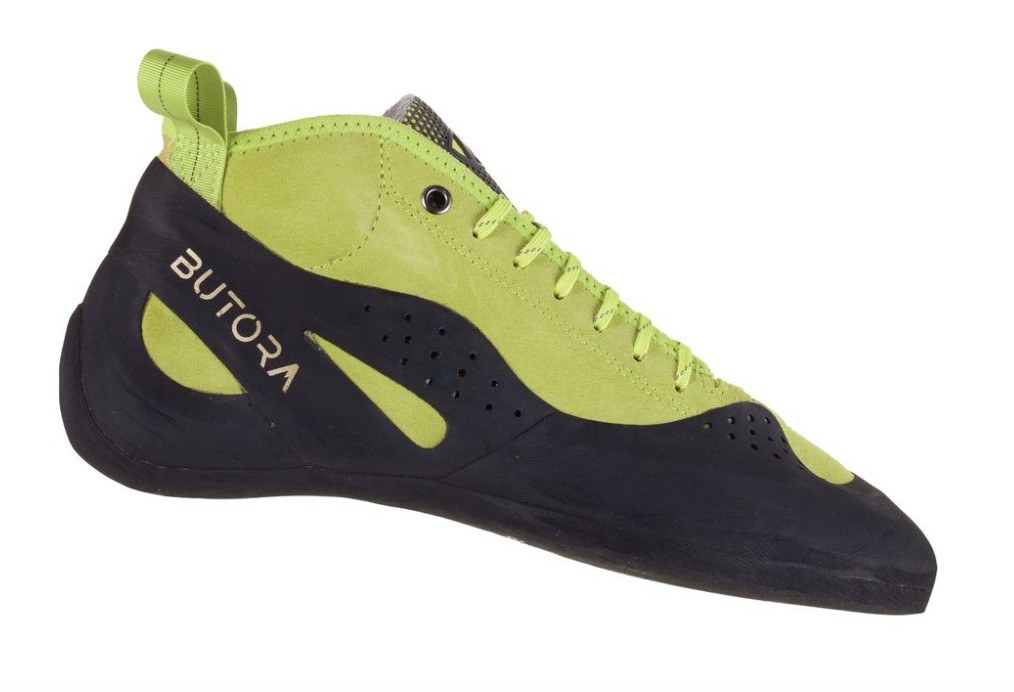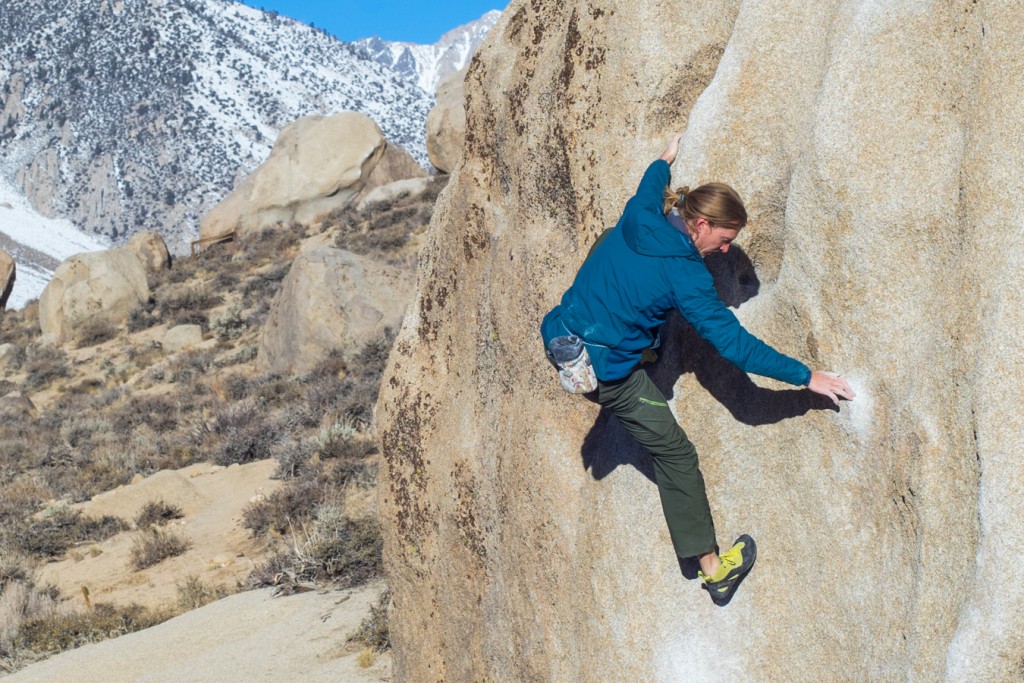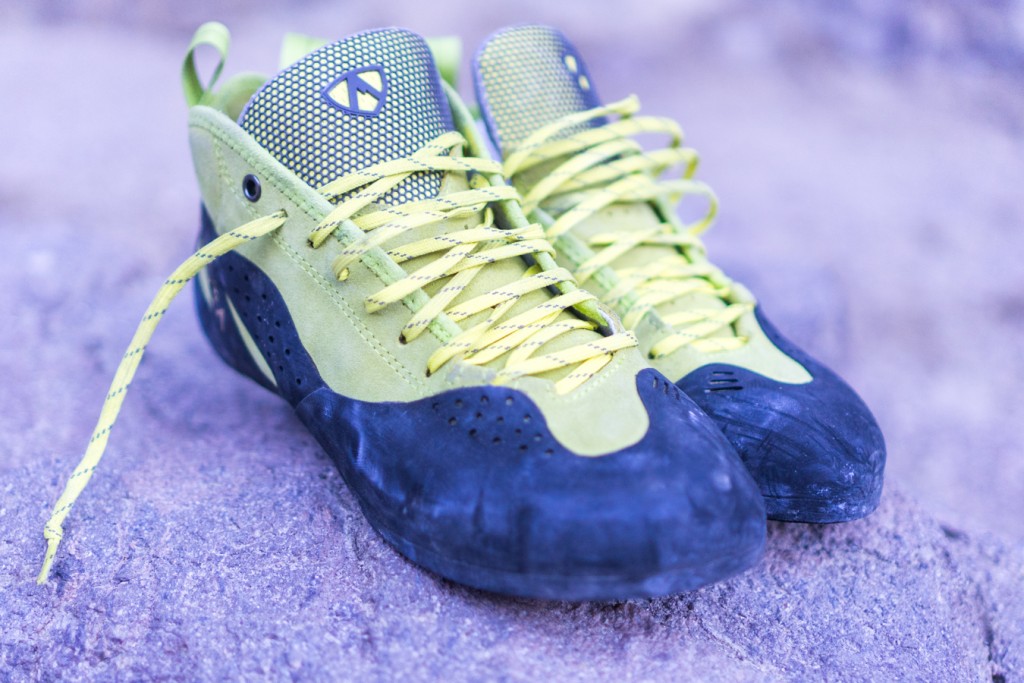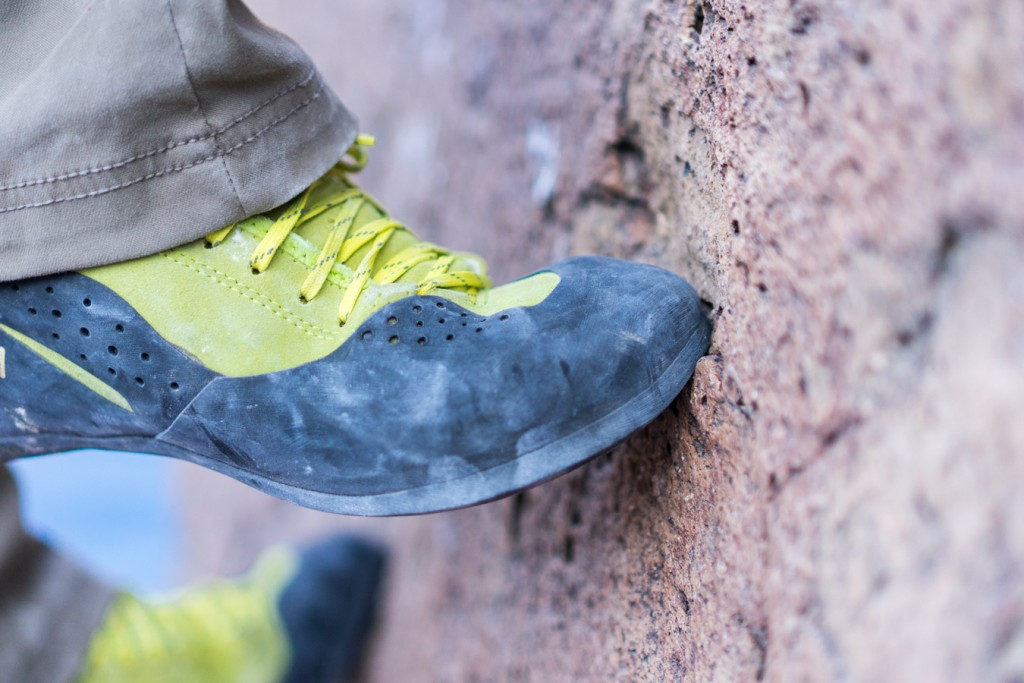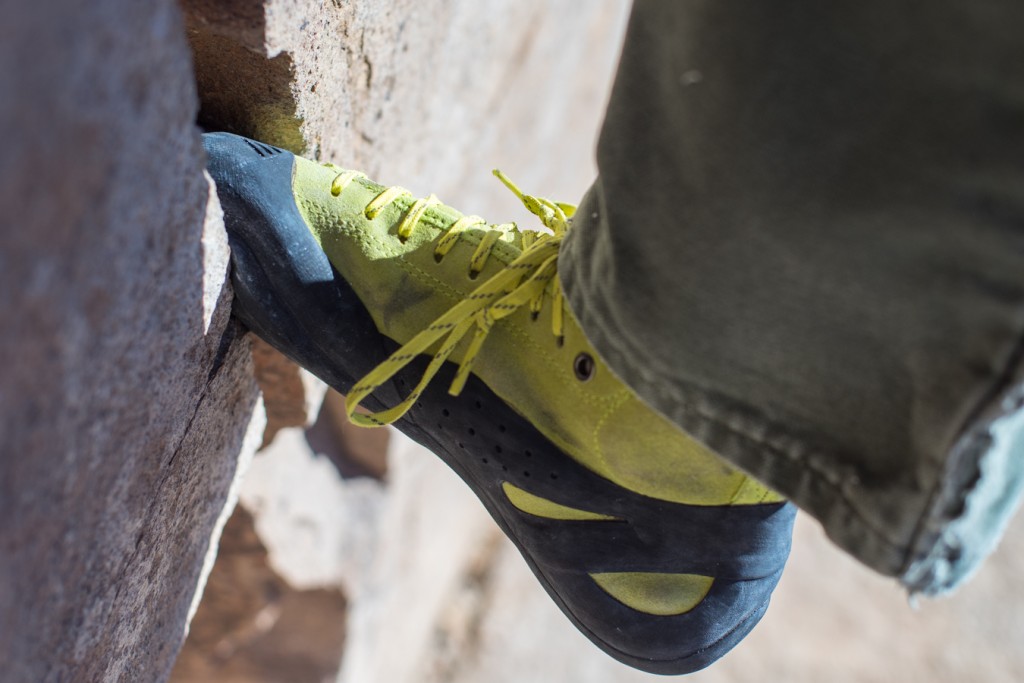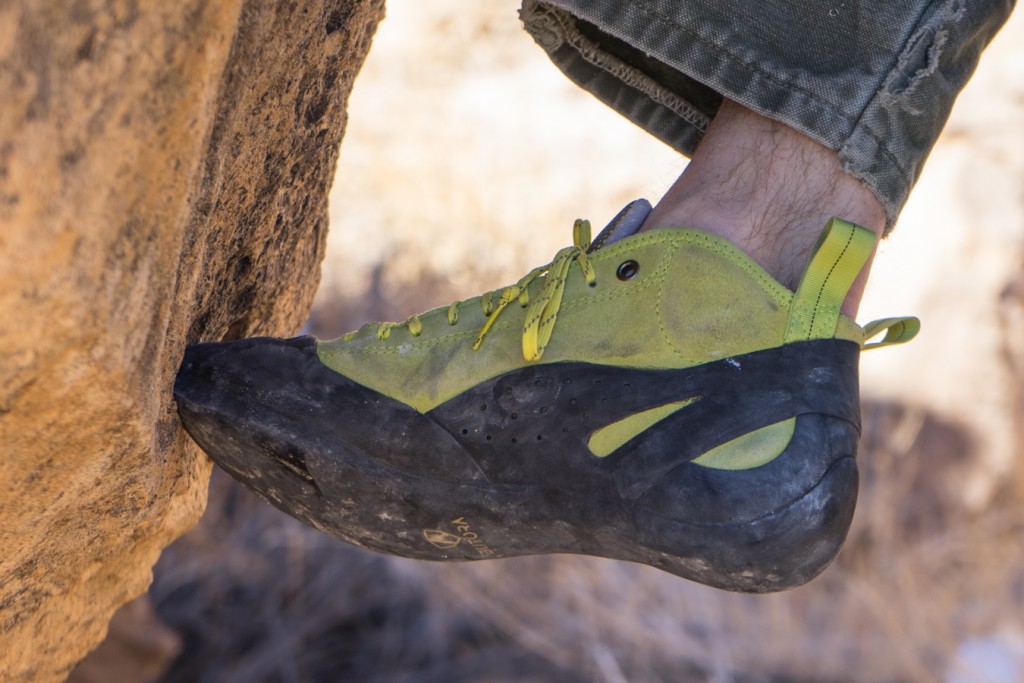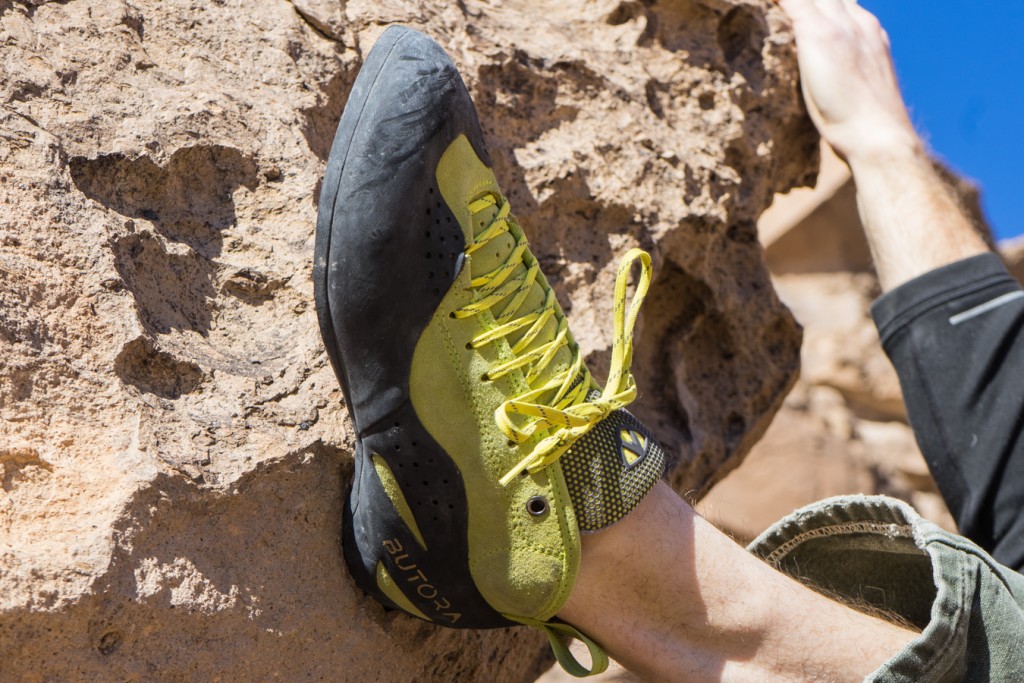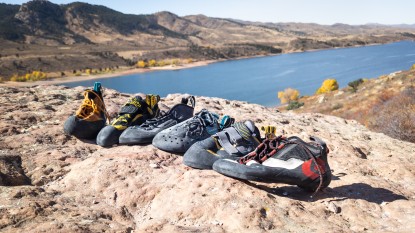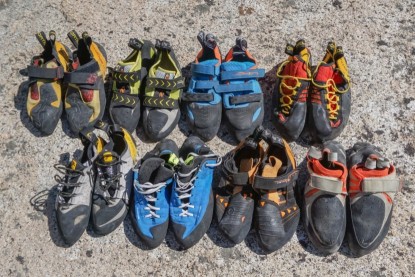Butora Altura Review
Our Verdict
Our Analysis and Test Results
This shoe shows plenty of obvious nods to the TC Pro with both its performance and general appearance, so this review will deal mostly with its advantages and shortcomings relative to the TC. In general, shoes of this style are decent for edging, great in wide cracks, and have a flat and comfortable fit.
Performance Comparison
Edging
The Alturas are stiff, even stiffer than the TC Pros. If sized correctly, you can stand on small edges for a long time, which is perfect for hours of low angle climbing in Yosemite Valley, Tuolumne Meadows, or Squamish. If you're used to a softer shoe, then you're going to have an adjustment period to get used to trusting small edges with such thick, clunky shoes. Stick with it, however, and you'll be rewarded with all-day comfort.
Comparing the Altura's edging prowess with the TC Pro is difficult because they feel pretty different. The Altura's hemp lining and additional stiffness make it harder to size correctly, and they require a longer break-in period. After a few months climbing in the Altura, we're still breaking them in, and they're still getting better. Butora uses it's proprietary Neo Fuse sticky rubber, and our testers feel like its a touch softer than the Vibram XS edge used on the TC Pro.
Crack Climbing
The plush, padded tongue of the Alura offers excellent protection in cracks hand sized and up. The rand is situated higher up on the sides of the shoe than the TC Pro's, and so far we haven't had any delamination issues like we occasionally have with the TCs.
In thin cracks, the Alturas suffer from the same shortcomings as the TC. The high volume toe is comfortable, but it makes the toe too thick for cracks that are tight hands (#1 Camalot) or smaller.
Pockets
We'd shy away from using these shoes for climbing pockets because we prefer pointier shoes for places like Wild Iris and Ten Sleep Canyon. The toe box is also tall so it can be hard to wiggle them into horizontal slots. Unless your Alturas get super broken-in, they're going to feel frustratingly clunky for precision pocket climbing.
Sensitivity
Ask us again in a year. Seriously, one fan of the Altura says he thinks they've finally broken in after their third resole. That's probably due to Altura's 7mm of Neo Fuse rubber, which is thickest in our shoe review and 3 full millimeters more than on a TC Pro. While this bids well for the shoe's longevity, it makes them feel insensitive out of the box, and a month later, they're still pretty stiff and clunky. But they do get better.
The break-in time on the TC Pro is shorter, and overall, it feels less stiff and more sensitive. For slabs, it's nice to have a bit of flex in your shoes so you can drop your heels and get lots of rubber on the rock. While the Alturas are starting to soften up, they definitely have not become our go-to slab shoe after a month in. Again, it's all about the long game with these shoes, and the long break-in speaks to a long life.
Comfort
These shoes shine in the comfort metric…eventually. Out of the box, our testers with high arches found the Altura uncomfortable as they molded our tester's feet to their stiff, flat last, and not the other way around. We've heard the same complaints about fresh TC Pros, but they soften up and become comfortable faster than the Alturas. Other testers complained about sharp Achilles pain due to the high-top design. They were able solve this issue by cutting a 1-inch deep V into the back the shoe, but this isn't a solution that most will be excited to employ on a brand new pair of shoes.
If you size these correctly with your foot flat and your toes just kissing the end of the shoe, they will become very comfortable and great for all-day use. The organic hemp lining feels great, and the padding in the tongue is soft, though not as breathable as the TC Pros. Our lead tester wears a US men's 9.5 street shoe and found a size nine about perfect for Alturas.
Value
These shoes are built like tanks and less expensive than TC Pros. If you don't mind suffering through the long break in period, you'll be rewarded with a very durable shoe that resoles well. We believe the Alturas are an excellent value, something to appreciate in an era where most high-end climbing shoes are approaching the $200 mark.
Conclusion
We'll keep climbing in the Alturas, since the more they break in the better they feel, becoming more precise over time as they soften up. We wanted these to feel like less expensive versions of the TCs. They're not, and don't expect the same fit or performance out of the box. We put these side by side with a brand new pair of TCs, and our lead tester could hop on the techiest of faces and pretty much climbed as confidently as he would with a worn-in pair. Not so with the Alturas. They're going to take some time before they start feeling really good. Just keep that in mind the first time you put a pair on. After a lengthy intro, they're a great alternative to the TC Pro, especially if you're having trouble finding the right fit with the TCs, or you want a very durable shoe for guiding or long, easy climbs.


